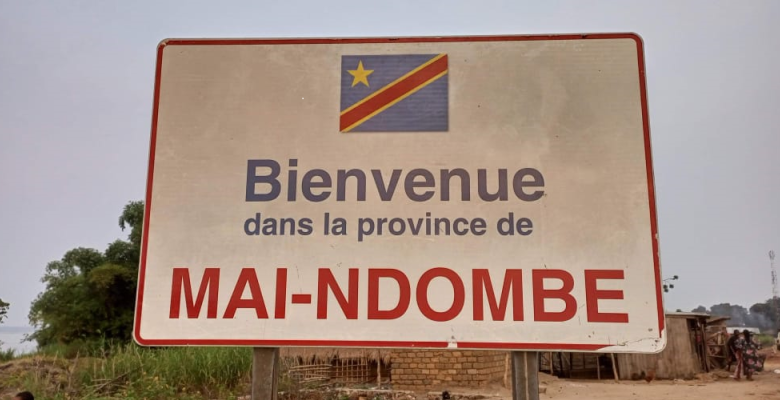Communal Violence In DRC Communities Forces Transporters To Suspend Operations
The inter-communal clashes between the Teke and Yaka communities in the Mai-Ndombe Province have already resulted in the deaths of 30 persons.

Transport agencies plying the national highway linking Kinshasa and Bandundu have been forced to suspend operations due to the communal conflict between the Teke and Yaka communities.
The inter-communal clashes have already resulted in the deaths of 30 persons.
A senior official of the Classic Coach agency who refused to divulge his name said, “We have the obligation to protect our clients and staff. Nobody wants to take the risk due to attacks on the national highway number seven.”
“Since vehicles cannot circulate, we are blocked here,” Gaston Makese and Jean-Marc Makese told HumAngle this morning.
At the Garage Tout Terrain (GTT) agency, whose office is closed, only one worker is present to hand over luggage belonging to passengers who came in from Kinshasa during the past several days.
A short distance from the GTT agency at the police checkpoint, nobody from Bandundu or Nganambo village is taking the risk to travel towards Kwamouth, where the communal conflict has displaced most of the population now hiding in the bushes.
HumAngle learnt that the only movement from the areas affected by the conflict is that of people escaping, who, on arriving at the police checkpoint, are interrogated before being allowed to proceed to their destinations.
A contingent of 20 soldiers from Bandundu has been dispatched to Camp Banku village, where travellers complain they are being subjected to extortion by members of the Teke community who have erected barriers.
The conflict was initially attributed to disagreements over customary loyalties paid to the local Teke authorities by the non-native Yaka people.
The situation has since changed and the local Teke people fault the Yaka for having installed a customary chief to replace a local Teke origin as chief as well as the presence of armed non-indigenes in the village of Dumu, who took two of four policemen, sent to ensure law and order at the scene of the conflict, hostage.
Mai-Ndombe has been a hotbed of communal conflicts in Yumbi since Dec. 2018. The violence between the Ntende and Nunu ethnic groups resulted in the deaths of 500 persons, according to the United Nations.
Seven persons were Thursday, Aug. 18, killed when the new clashes between the Yaka and Teke communities in Kwamouth territory, Mai-Ndombe, broke out following weeks of violence. The new incidents occurred in the villages of Liduma and Miboro, where several houses were burnt, according to the local civil society actors.
Support Our Journalism
There are millions of ordinary people affected by conflict in Africa whose stories are missing in the mainstream media. HumAngle is determined to tell those challenging and under-reported stories, hoping that the people impacted by these conflicts will find the safety and security they deserve.
To ensure that we continue to provide public service coverage, we have a small favour to ask you. We want you to be part of our journalistic endeavour by contributing a token to us.
Your donation will further promote a robust, free, and independent media.
Donate HereStay Closer To The Stories That Matter




